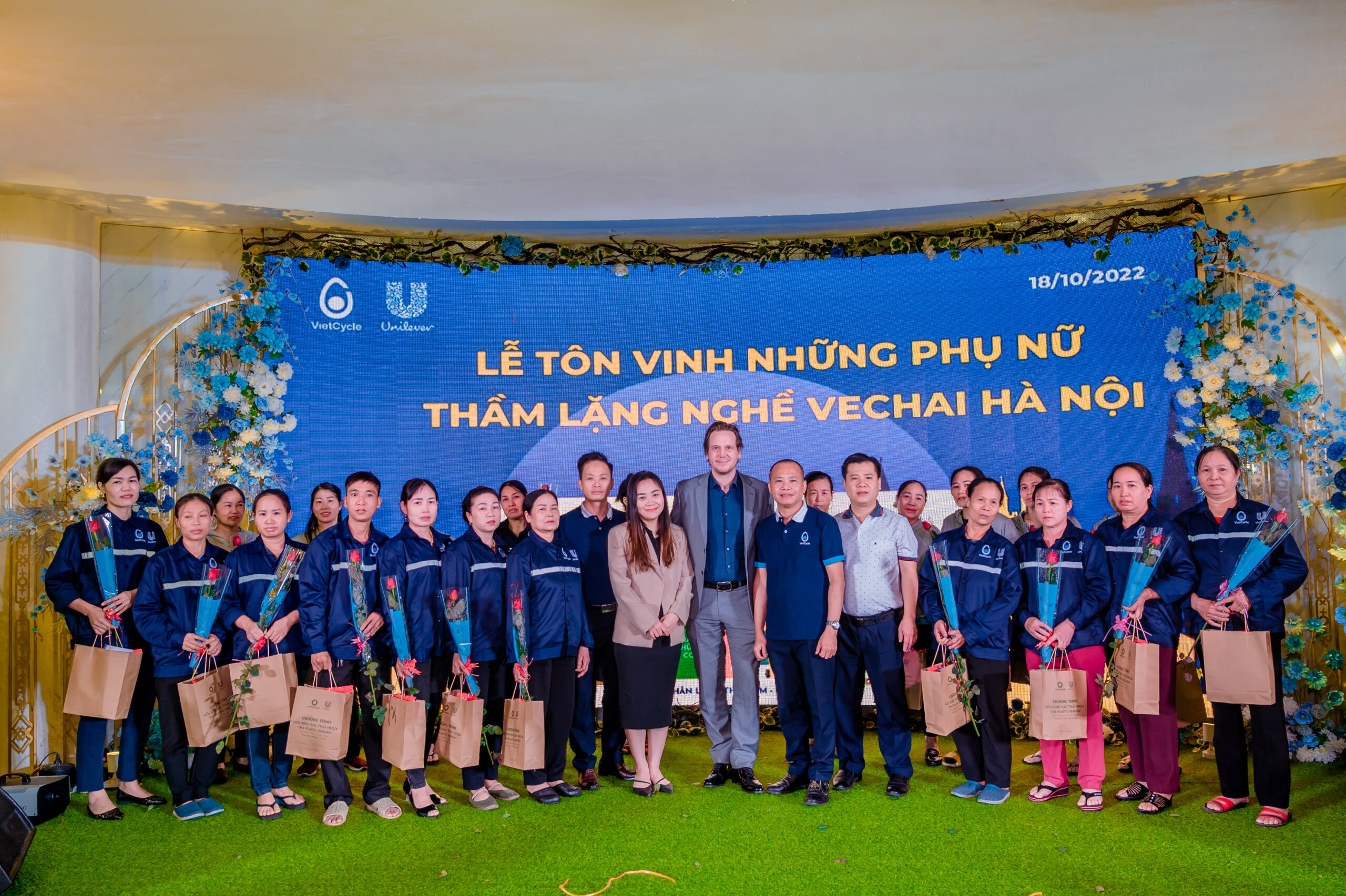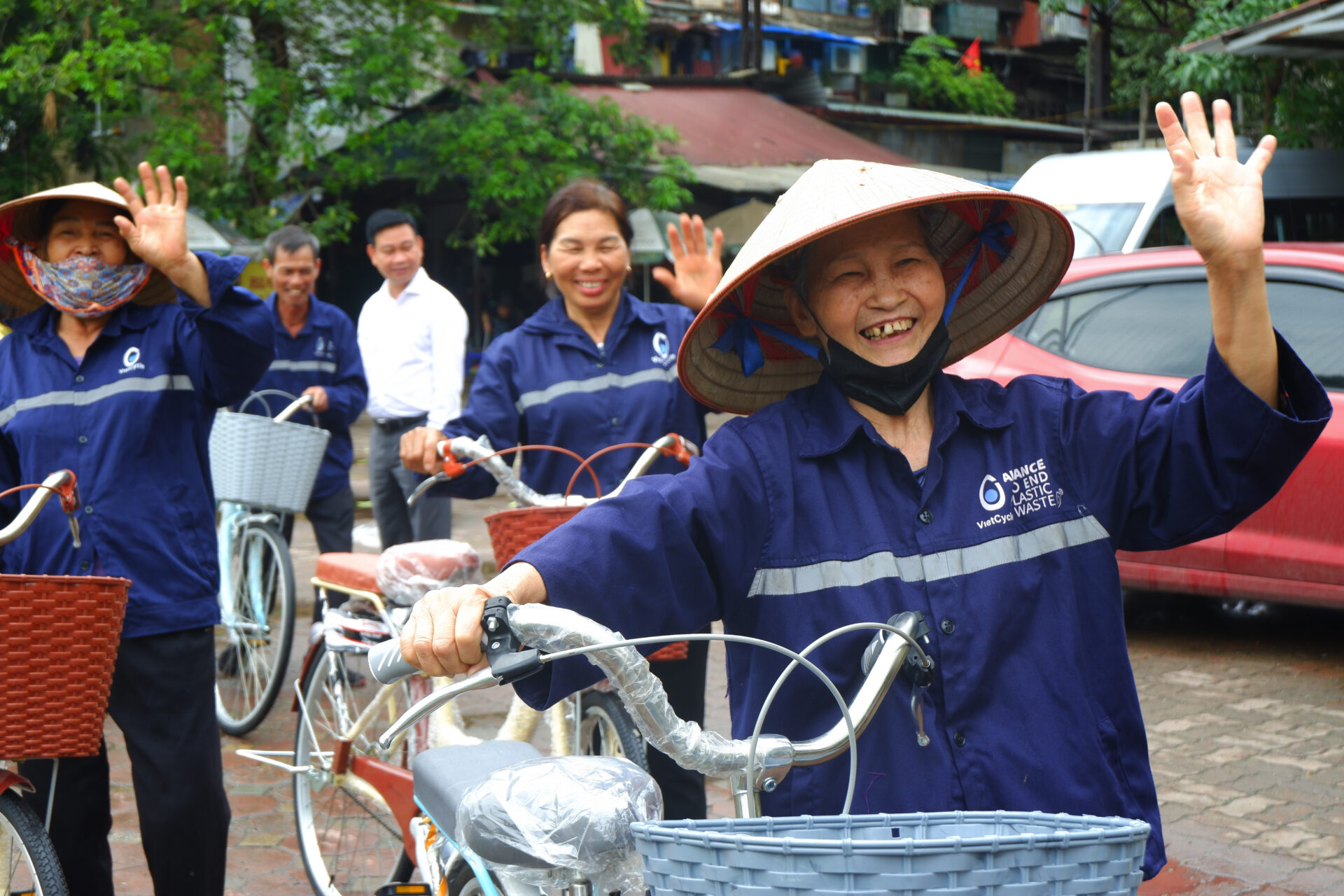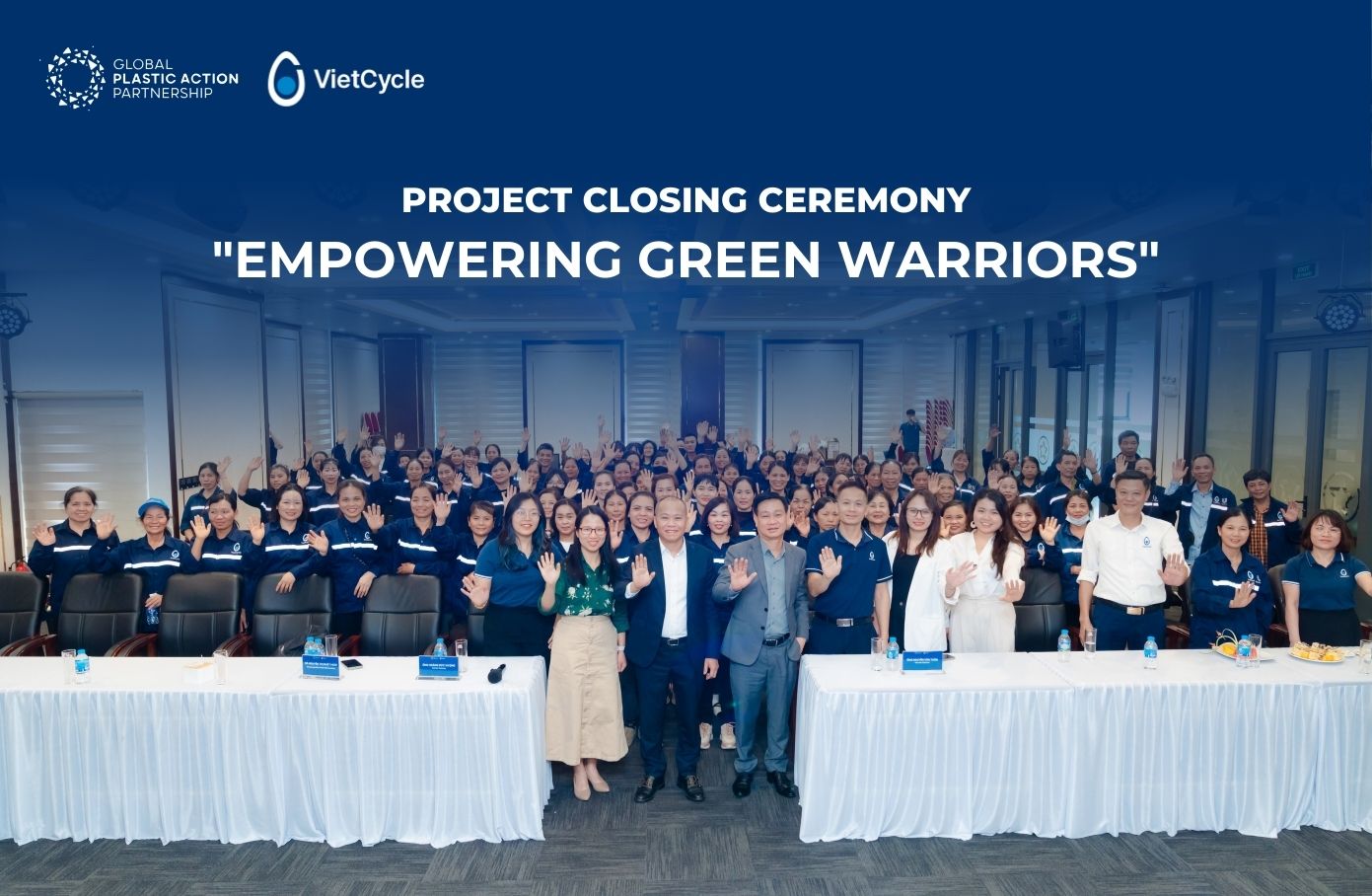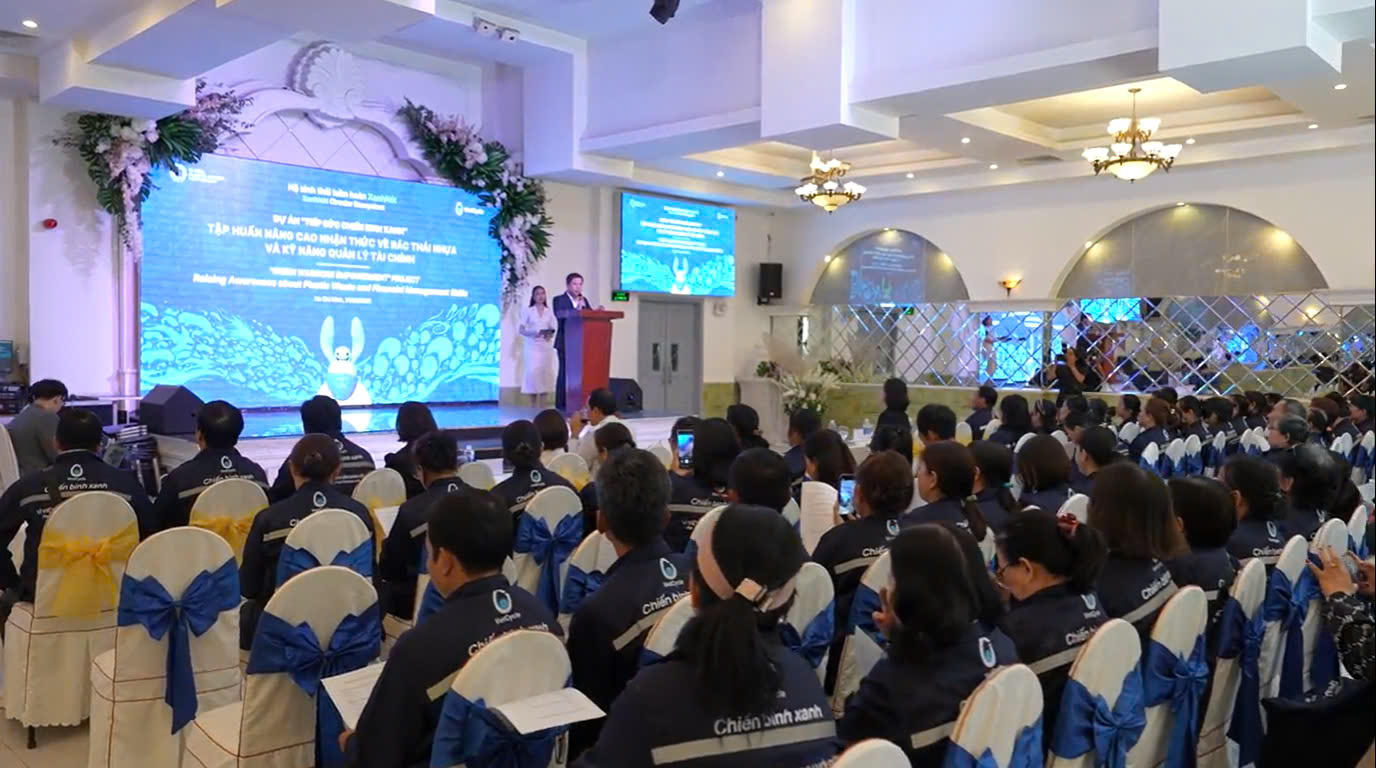Through “The Plastic Reborn” programme implemented since 2021, Unilever Vietnam and its partner VietCycle have stressed the important role of the informal waste collector workforce, most are women, in the plastic waste segregation and collection system.
On the occasion of celebrating the Vietnamese Women’s Day October 20, the company has reviewed the programme on promoting waste segregation at source and plastic waste collection to protect the environment, while improving the working and living conditions for female informal waste collectors.
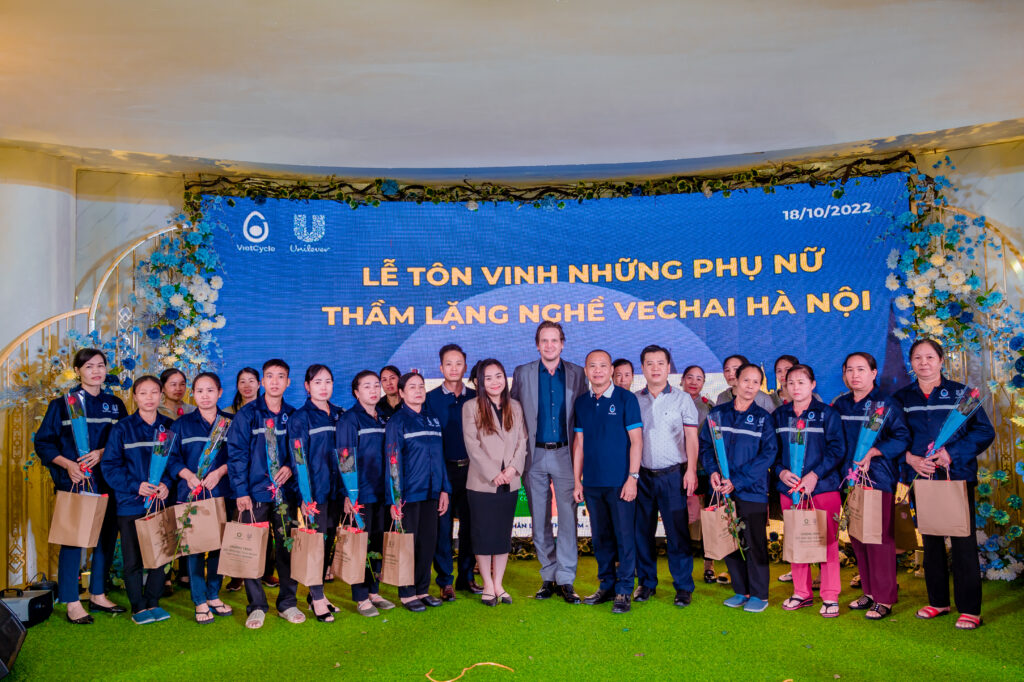
The programme helps promote the Circular Economy model, and improve working conditions, occupational safety, health and life for female informal workers in the value chain.
This initiative has successfully built a collection system in Hanoi through recruiting and building on-street collection agents, large collection stations, and a labour network of more than 1,200 informal waste collectors.
The programme has segregated and collected over 12,000 tonnes of plastic waste so far.
It has also implemented training and communication activities to collection associations, collection stations and informal waste collectors, helping them with information about hygienic conditions, labour safety, and protective equipment for the plastic waste collection process. This helps to improve health and living conditions for the collectors.
According to the Food & Agriculture Organisation of the United Nations (FAO) in Viet Nam, Viet Nam is in the top 10 countries responsible for about 13 million tonnes of plastic waste discharged into the ocean each year.
More than 30 per cent of waste in Viet Nam is collected through informal channels, according to the United Nations Development Program (UNDP).
“Most of the labour force involved in waste segregation and collection are women. They are the environment ‘ambassadors’, a force for a cleaner and better country,” Le Thi Hong Nhi, head of Communications and Corporate Affairs at Unilever Vietnam, said.
Therefore, facilitating female labourers to participate in the programme contributes to empowering women through giving them opportunities to develop and create positive added values for society and the community, thereby improving women’s social and family status, and contributing to driving the gender equity commitment, she said.
This plays a meaningful role as it contributes to Unilever’s women’s empowerment mission through livelihood enhancement and education on occupational safety and health protection for women.
“Along our sustainable development journey, Unilever pays special attention to the goal of building a waste-free world through strong commitments in plastic waste management,” she said.
The company pledges all packaging will be recyclable, and will reduce the amount of virgin plastic in packaging production by half through absolute reduction and the increase in post-consumer recycled plastic by 2025.
It will also collect and process more plastic waste than the packaging amount sold on the market – underpinning to create a cycle for plastic waste.


